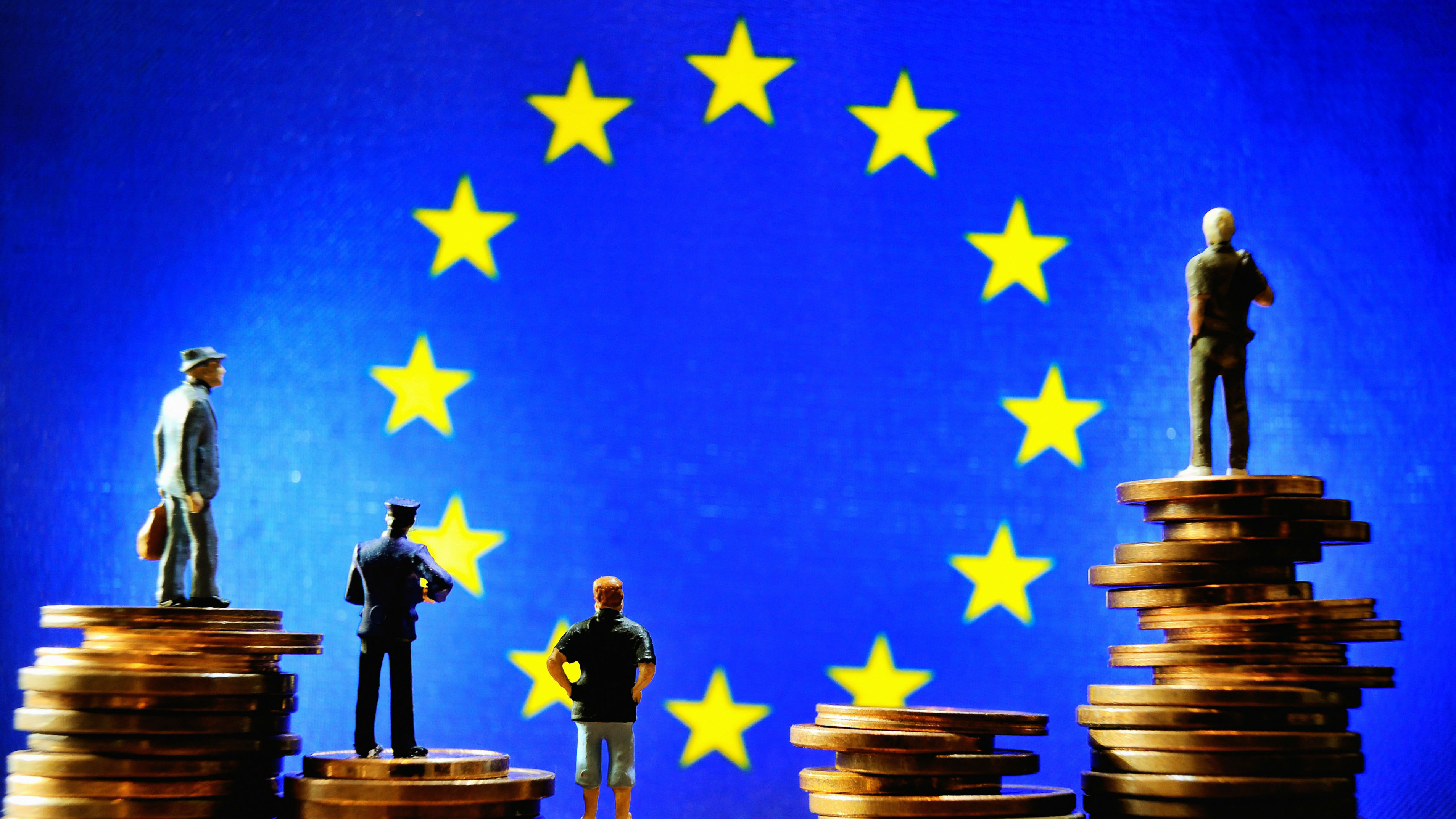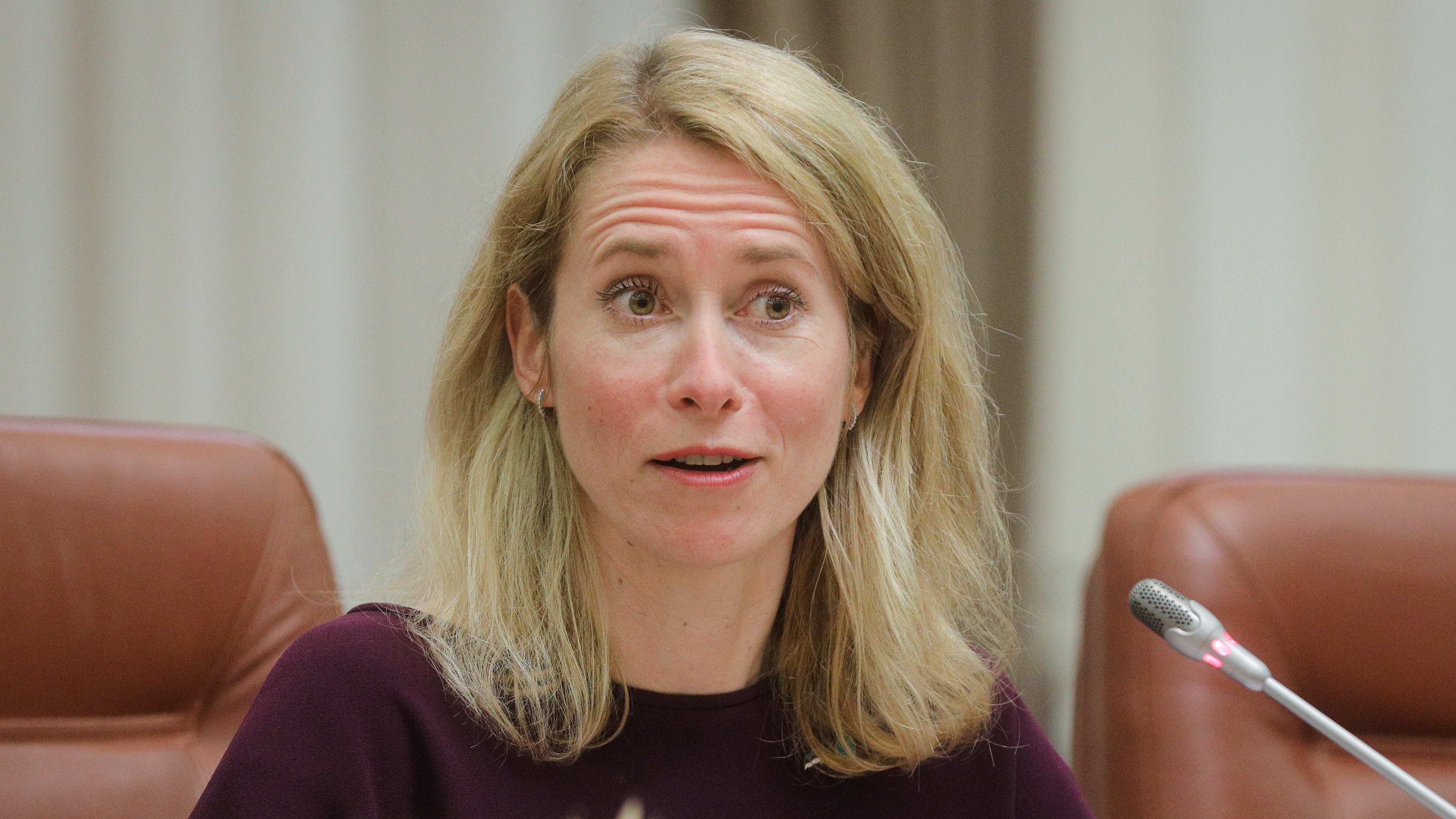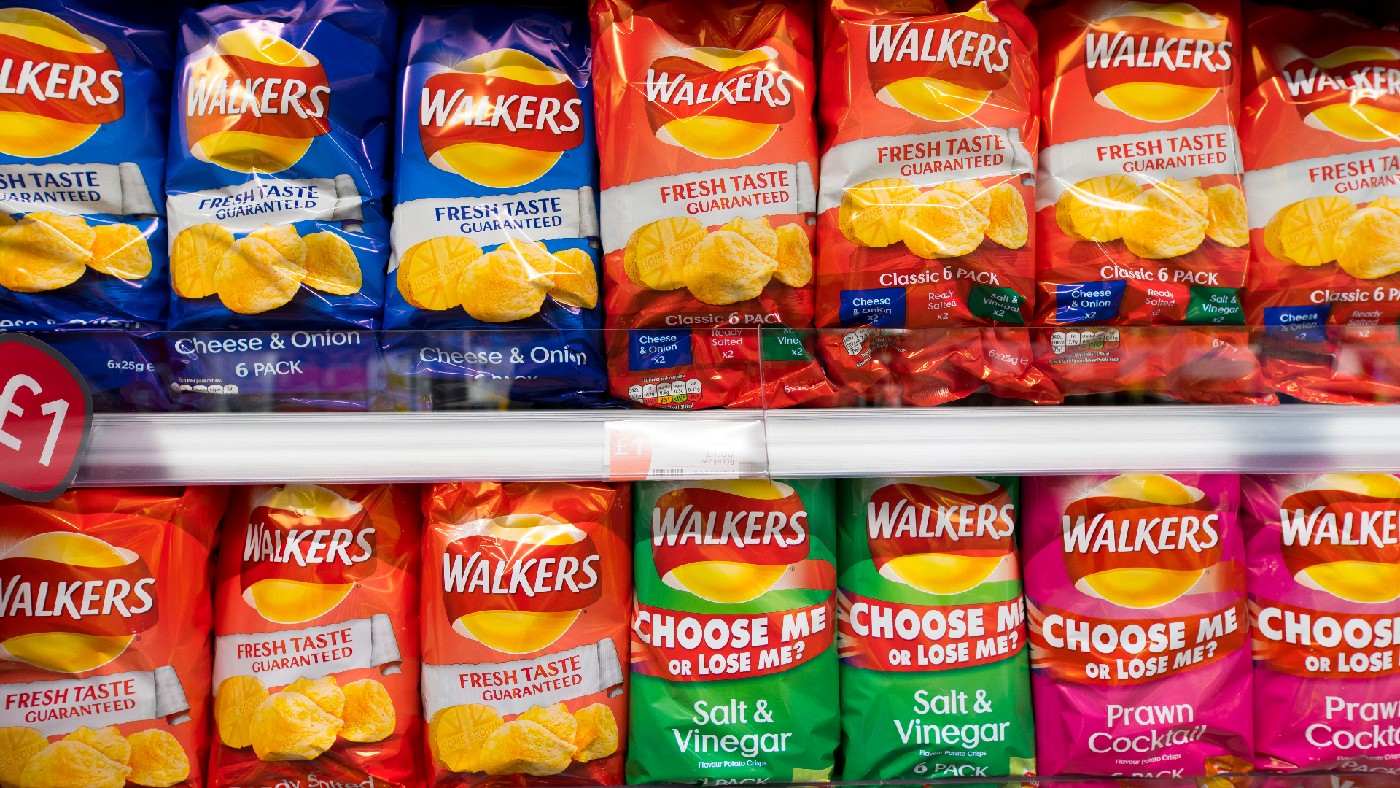Brexit uncertainty: the impact on the UK economy in four charts
Finance professor argues that the chaos in UK politics is playing havoc with the country’s finances

A free daily email with the biggest news stories of the day – and the best features from TheWeek.com
You are now subscribed
Your newsletter sign-up was successful
Costas Milas, Professor of Finance at the University of Liverpool, offers his thoughts on the impact of Brexit.
Each day brings with it new drama in UK politics and the course of Brexit – and it’s playing havoc with the UK economy. The following four graphs show the extent that the UK is at risk of a recession – and I conclude that the only way to put an end to all the uncertainty that is plaguing investment and markets is to have another referendum.
1. Uncertainty
The Week
Escape your echo chamber. Get the facts behind the news, plus analysis from multiple perspectives.

Sign up for The Week's Free Newsletters
From our morning news briefing to a weekly Good News Newsletter, get the best of The Week delivered directly to your inbox.
From our morning news briefing to a weekly Good News Newsletter, get the best of The Week delivered directly to your inbox.
Boris Johnson wants to deliver Brexit, with or without a deal. Of this he is certain. But Brexit-related policy uncertainty is on the rise and this is already harming the UK economy. The following graph shows how UK policy uncertainty spiked in 2016 around the time of the Brexit referendum and is on the rise again now.
The Conversation, CC BY-ND
Uncertainty is measured by the discussion of policy uncertainty across 650 UK newspapers, reflecting business and consumer confidence in the economy. When uncertainty rises, this knocks the pound sterling currency down as investor confidence in the UK falls.
2. Fall in the pound
A free daily email with the biggest news stories of the day – and the best features from TheWeek.com
The Conversation, CC BY-ND
The weaker pound makes imports more expensive, which pushes up the prices of a number of consumer goods, causing inflation. In its July report, the Bank of England had predicted inflation to drop from 2.1% in July 2019 to 1.56% by the end of the year and remain below the 2% inflation target until the third quarter of 2020. But, following recent events, the bank’s governor, Mark Carney, has revised his inflation estimates, saying it could more than double to 5.5%.
This puts the Bank of England in a tricky situation. It will have to decide whether to raise interest rates to tackle inflation or cut them to stimulate economic growth.
3. Risk of recession
Government data suggests that the UK economy contracted by 0.2% in the second quarter of 2019. A recession occurs when there are two successive quarters of negative GDP growth. Early evidence suggests that the economy might already be heading this way because money growth, a reliable predictor of UK GDP growth, has weakened significantly.
The next chart plots together real money growth, using the Divisia money index, and GDP growth. The Divisia index weighs different forms of money according to their likelihood of being spent – notes and coins have a higher weight than money held in mutual funds, for example. My research shows this measure of money has strong predictive power for the UK economy, and the latest growth rates of money are at a seven-year low.
Costas Milas, CC BY-ND
This indicates that GDP growth in the third quarter of 2019 might be as bad as in the second quarter of 2019. In other words, there is evidence of a looming recession whether or not the UK leaves the EU on October 31. The latest UK output surveys also point to a looming recession.
4. Financial stress
A Brexit-related UK recession is far from certain, however, and it might not be too late to change course. Another reliable predictor of UK growth developments is the UK financial stress indicator. This pools information from the volatility of the exchange rate, the volatility of the equity market, the volatility of the bond market and the risk premium that investors demand to hold UK corporate bonds rather than the less risky UK government bonds.
The fourth chart plots together the UK financial stress indicator and UK growth.
Costas Milas, CC BY-ND
From a historical point of view, a rise in financial stress signals a slowdown in UK growth between one and three quarters prior to UK growth turning negative. Notice, however, that the latest financial stress data is pretty subdued – which does not point to a forthcoming UK recession. This is largely because market participants expect the Bank of England to step in by cutting interest rates and authorising additional quantitative easing to counteract the rise in financial stress caused by a possible no-deal Brexit.
What the UK needs
If there is a snap election, policy uncertainty will remain high. The latest polls suggest another hung parliament and this will solve nothing.
What the UK really needs is another referendum. There have been suggestions of a three-way referendum where people vote to remain in the EU or leave with the deal that Theresa May negotiated or a no-deal Brexit. Financial Times journalist James Blitz suggests a remain versus no-deal Brexit referendum to end the deadlock.
But I think the referendum should be solely between Theresa May’s deal (which is still on offer) versus a no-deal Brexit. Though I am myself a committed “Remainer”, I believe this is the only way to respect the previous referendum vote. It is also the best way to end the uncertainty that is plaguing business and investor confidence in the UK economy.
The best outcome will be to accept May’s withdrawal agreement (or a last minute slightly “tweaked” version of it) and move on. The Bank of England, and rightly in my view, forecasts that a no-deal Brexit will be very damaging.
I have argued further that the UK’s banking sector might struggle to absorb a potentially huge drop in bank deposits as customers will be looking for alternative returns outside a sinking (at least in the short-term) UK economy. So those in favour of no-deal should be brave and detailed enough to tell the rest of us why no-deal will not be damaging.
Costas Milas, Professor of Finance, University of Liverpool
This article is republished from The Conversation under a Creative Commons license. Read the original article.
-
 Switzerland could vote to cap its population
Switzerland could vote to cap its populationUnder the Radar Swiss People’s Party proposes referendum on radical anti-immigration measure to limit residents to 10 million
-
 Political cartoons for February 15
Political cartoons for February 15Cartoons Sunday's political cartoons include political ventriloquism, Europe in the middle, and more
-
 The broken water companies failing England and Wales
The broken water companies failing England and WalesExplainer With rising bills, deteriorating river health and a lack of investment, regulators face an uphill battle to stabilise the industry
-
 Can the UK avoid the Trump tariff bombshell?
Can the UK avoid the Trump tariff bombshell?Today's Big Question President says UK is 'way out of line' but it may still escape worst of US trade levies
-
 Five years on, can Labour's reset fix Brexit?
Five years on, can Labour's reset fix Brexit?Today's Big Question Keir Starmer's revised deal could end up a 'messy' compromise that 'fails to satisfy anyone'
-
 Why au pairs might become a thing of the past
Why au pairs might become a thing of the pastUnder The Radar Brexit and wage ruling are threatening the 'mutually beneficial arrangement'
-
 Brexit: where we are four years on
Brexit: where we are four years onThe Explainer Questions around immigration, trade and Northern Ireland remain as 'divisive as ever'
-
 Is it time for Britons to accept they are poorer?
Is it time for Britons to accept they are poorer?Today's Big Question Remark from Bank of England’s Huw Pill condemned as ‘tin-eared’
-
 Is Brexit to blame for the current financial crisis?
Is Brexit to blame for the current financial crisis?Talking Point Some economists say leaving the EU is behind Britain’s worsening finances but others question the data
-
 How Brexit handed a ‘financial boon’ to former Soviet state Estonia
How Brexit handed a ‘financial boon’ to former Soviet state EstoniaIn Depth Around 4,000 companies have set up shop in member state since UK left EU, prime minister says
-
 Why the UK is suffering a Walkers crisps shortage
Why the UK is suffering a Walkers crisps shortagefeature Production issues have forced snack giant to prioritise most popular varieties